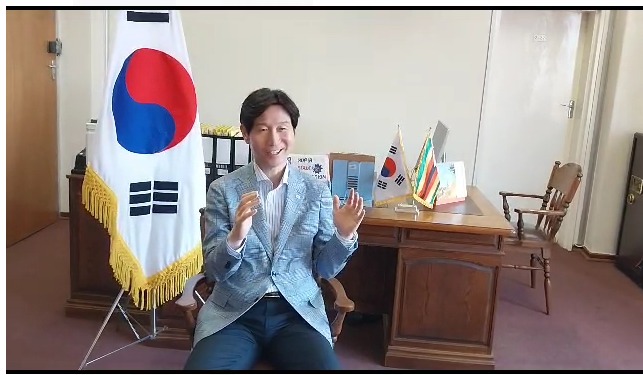
The Korean embassy in Zimbabwe has donated laboratory equipment, chemicals and a state-of-the-art solar powered aeroponics greenhouse worth US$149,513.00 to the Scientific and Industrial Research Development Centre (SIRDC).
The equipment and chemicals is part of the embassy’s contribution towards the seed potato program being carried out by the SIRDC.
The greenhouse boasts of 12 aeroponics units which can hold an average capacity of 1000 plants.
Expected output is at least 30,000 minitubers per cycle.
The announcement was made in a joint statement. The donation dovetails with the government of Zimbabwe’s vision 2030 of attaining an upper middle income society by the year 2030.
“This donation. therefore, improves the production capacity of the seed potato program which is pivotal for the attainment of the national development goals”, read the statement.
The nation has witnessed rapid increase in smallholder potato production and has potential to contribute to food security at household level and the nation at large.
Previously the main source of potato seed for smallholder farmers was the informal market. Informal seeds are compromised as their quality may be questionable. It has been noted that current production capacity stands at 10 tonnes per hectare whereas in other countries which access disease free seed the yield can reach up to 25 tonnes.
In an aeroponics system, plant roots are suspended in the open air under growth controlled environments.
Research enhances increased productivity of potatoes and improved livelihoods.
SIRDC’s relationship with the Republic of Korea dates back to July 2010 when the Rural Development Administration (RDA), SIRDC and 14 other African countries formed an inter-governmental and multilateral cooperation body – the Korea Africa Food and Agriculture Cooperation Initiative (KAFACI).
The development of disease free Irish potato seed is one of the first projects implemented through the collaboration between SIRDC and KOPIA from year 2017 to year 2022, to unlock the yield gap in the potato value chain by overcoming the supply bottle neck limiting provision of high quality disease free seed and also to improve productivity, increase food security and raise income at household level.
Zimbabwe has witnessed massive agricultural growth buoyed by government support and partnerships.
The country is now food secure.
The Republic of Korea continue to work with Zimbabwe on various development projects.




